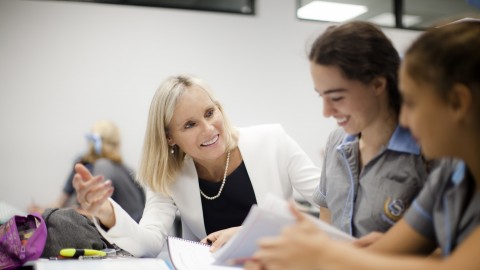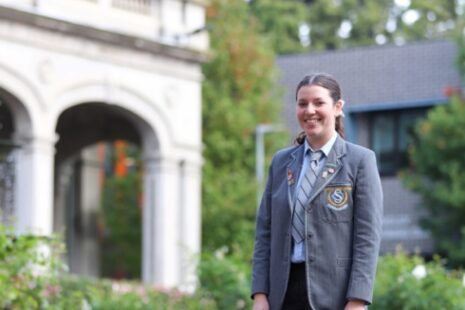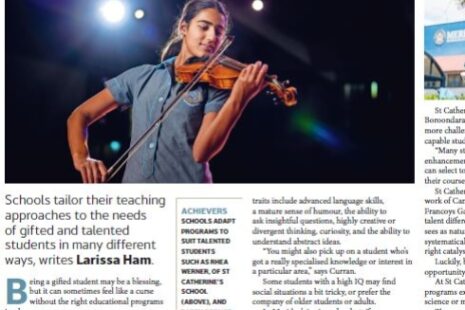Should Parents Help?

To help or not to help? Deputy Principal, Mrs Rosemary Ward delves into the age old parenting dilemma of assisting children with their homework.
In households around the world parents are confronted with the age old parenting dilemma of – to help or not to help with their child’s homework? Is it a parental responsibility to assist or a duty to stand back and allow them to learn the hard way?
There is no easy answer to this predicament. Many parents have been faced with this problem. Fortunately credible researchers have provided practical advice for situations such as this. The Family-School & Community Partnerships Bureau has focussed their attention on the connection between parental interest and student holistic development. As a result of this research the authors concluded positive parent engagement in the learning process increases student wellbeing and achievement. Thus, there are many ways parents can support the educational growth of their children without hindering their independent development, including:
– Fostering a love of reading by seeking to read stories of material that interests their children
– Discussing what they have learned in the classroom
– Talking about current affairs recently featured in the media
– Accompanying them to clubs or groups offering a range of activities for them to enjoy
– Attending School productions in which their child is involved.
Of course these activities do not exclude assisting with homework on occasions where it is deemed to be beneficial to the child’s learning process. However, an Australian study has found that parents who become overly concerned in their child’s homework can actually hamper the child’s progress. Dr Judith Locke, a clinical Psychologist, found that some parents who became overly involved with their child’s homework and continued this practice well into their child’s adolescence, would stop the child from taking responsibility for their future learning. Locke reaffirms this view stating that this style of over-parenting, with the goal of improving academic achievement, could be undermining the child’s academic welfare. Locke also notes that pressure and interest in a child’s school work can add to the student becoming anxious about their work and their performance. Another study published in the Journal of Psychologists and Counsellors in Schools found that such parents are not allowing their children to own their own learning and reap the consequences, both positive and negative, of their actions. In essence students may not develop the necessary self-management skills required in adulthood.
Essentially, the research indicates that as students grow older, they must be allowed to work through difficulties in managing their homework but also learn to seek help to address any problems as they arise. In doing so, students become resourceful and learn perseverance. Moreover, they would not develop an entitlement mentality where they expect people to bail them out of any challenging situations.
More importantly they become proactive in their own learning and develop time management skills. Locke encourages parents to show interest in their children’s school work but “avoid being more interested in their schoolwork than they are” and make sure they are “coaching” and not “doing”. Locke reminds readers that parentss actions are not to make the student successful, but focus on building skills that will enable them to become independent learners who are capable of success by themselves.
Certainly at St Catherine’s we welcome, rely on and value parent involvement and support. At the same time, we encourage our girls to be independent learners, who are well organised and have good study habits. As the girls progress through the School, they receive specialised help in effective study and time management skills relevant to their particular Year group. For example as girls commence their transition to Senior School, they work through a weekly program called Learning @Home. This course is designed to cover a raft of relevant topics from:
– What are the different ways to study?
– How to use the record book effectively
– How to manage a weekly schedule including both homework and extra curricula activities
– How to study for tests
– What is a glossary?
– How to prepare for the School day
There are many more topics covered in this course and girls from all levels can find additional help by checking out the resources on mystcatherines Student Support page. At St Catherine’s we seek to enable our girls to not only achieve their best at School but master the necessary life skills that will equip them with the tools to fulfill their dreams.
Sources:
http://www.aracy.org.au/publications-resources/command/download_file/id/7/filename/Parental_engagement_in_learning_and_schooling_Lessons_from_research_BUREAU_ARACY_August_2012.pdf
http://www.nytimes.com/roomfordebate/2014/11/12/should-parents-help-their-children-with-homework/help-children-form-good-study-habits
Alliance of Girls Schools Australasia- Helping with homework undermines independence and resilience





